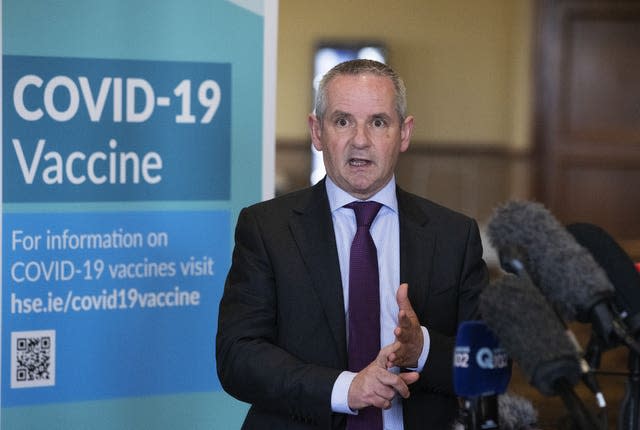Ireland’s health service shuts down IT systems after ransomware attack
Ireland’s health service has been forced to shut down its IT systems after being hit by a “significant ransomware attack”.
The attack was discovered overnight and has affected all of the HSE’s national and local systems, chief executive Paul Reid said.
The HSE said on Twitter that it had temporarily shut down its systems as a “precaution”.
There is a significant ransomware attack on the HSE IT systems. We have taken the precaution of shutting down all our our IT systems in order to protect them from this attack and to allow us fully assess the situation with our own security partners.
— HSE Ireland (@HSELive) May 14, 2021
The Master of Dublin’s Rotunda Hospital, Professor Fergal Malone, asked women not to attend appointments scheduled for Friday, unless they are over 36 weeks pregnant, or in an emergency.
Mr Reid said people with outpatient appointments in other hospitals should still attend “unless and until” they hear otherwise from the HSE.
In addition, the Covid-19 vaccination programme has not been affected and people are urged to attend and book appointments as normal.
Mr Reid said: “We have been the subject of a very significant, major ransomware attack.
“It’s a very sophisticated attack. It is impacting all of our national and local systems that would be involved in all of our core services.
“We did become aware of it during the night and have been acting on it straight away. The immediate priority is obviously to contain this.”

Mr Reid told RTE’s Morning Ireland the health service was hit by a “human operated ransomware attack”, where hackers gain access to data and then seek a ransom for it.
He said no ransom demands have yet been received.
The HSE has shut down many of its major systems as a precautionary measure and is being supported by national cyber security teams, including Gardai, the defence forces and third party support teams.
“As the morning progresses we’ll get greater clarity on the issue and greater clarity of the impacts and greater clarity of next steps we are taking,” Mr Reid added.
Scheduled COVID-19 tests will go ahead as planned. Please attend if you have an appointment. pic.twitter.com/CvhMGTA9vx
— HSE Ireland (@HSELive) May 14, 2021
He said the vaccination programme is unaffected.
“I do want to reassure everybody this morning that the vaccination programme continues. It’s not impacted,” he said. “So everybody should still come forward.”
He added that life-saving equipment, such as that used in intensive care units, has also not been affected.
“This is more or less information technology systems and transferring information across networks,” he said.
Rotunda Critical EmergencyDue to a serious IT issue all outpatient visits are cancelled today – unless you are at 36 weeks pregnant or later. All gynae clinics are cancelled today.If you have any urgent concerns please attend as normal.
Further updates will follow.
— The Rotunda Hospital (@RotundaHospital) May 14, 2021
The Rotunda’s Prof Malone said: “There’s no problems for patient safety. But, as a precaution, we’re asking all patients who have appointments today to not attend the hospital unless it’s an emergency, or unless they’re 36 weeks pregnant or over.
“All equipment is all absolutely operational and fine. Computers logging into electronic healthcare records is the issue, and the ability to access patient demographics, things like that – computer-based systems.
“They’ve all been taken offline as a precaution. We have systems in place to revert back to what you might call old=fashioned paper-based record-keeping.
“But, as you can imagine, when a new patient arrives at the front door of the hospital, traditionally you type in her name into a computer and get all of her details. That can’t happen.
“So we have to do that by paper, as patients come through the front door, (so it) will be much slower than normal.”
National IT issue update at The NMH.
We ask our patients to please attend the hospital for their appointments as scheduled. Patients can expect some delays due to the ongoing IT issue.
We very much appreciate your support and cooperation. pic.twitter.com/73oPeCdZnv
— The National Maternity Hospital (@_TheNMH) May 14, 2021
The National Maternity Hospital in Holles Street also warned of “significant disruption” due to the attack.
It said in a tweet: “Due to a major IT issue, there will be significant disruption to all our services today. If you have an appointment/need to come to the hospital, please come as normal. We ask that you please bear with us.”


